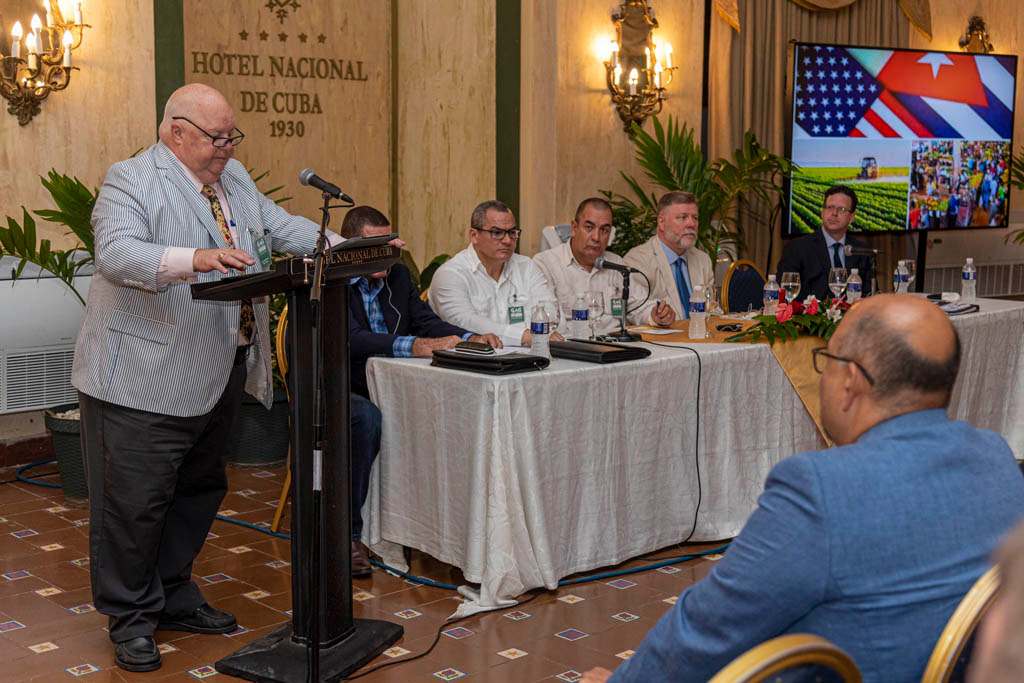In the opinion of U.S. Congressman Rick Crawford, holding this type of meetings on a regular basis constitutes progress, although “we are still not where we would like to be”.
For any country in the world, food security is an essential component of national security, the legislator, who appreciated the growing support within the United States for agricultural initiatives in favor of regularizing economic and trade relations with the island, said.
In this regard, he praised the work of the US-Cuba Agricultural Coalition (“Focus Cuba”), headed by Paul Johnson, in the search for alternatives to normalize trade, and we, he said, remain committed to this action.
According to Johnson, the coalition has accumulated 10 years of uninterrupted work, facing multiple challenges, and this new meeting in Havana should serve to concretize projects.
According to Johnson, the U.S. delegation is large and is made up of representatives of the agricultural sector from all over the country, while the counterpart includes ministerial executives and members of micro, small and medium-sized enterprises.
Also the Louisiana Commissioner of Agriculture, Michel Strain, highlighted the favorable expectations regarding bilateral ties and recalled a recent dialogue with President Miguel Diaz-Canel, on the occasion of a visit to Havana, organized by the National Association of U.S. Departments of Agriculture (NASDA, by its acronym in English).
Cuban Minister of Agriculture, Ydael Pérez, attended the inauguration of the event, in which the head of the Agricultural Business Group, Orlando Linares, characterized the priorities of the State policy on food security, as well as the damages inherent to the economic, financial and commercial blockade maintained by the U.S. Government against this Caribbean nation.
In the midst of such restrictions, the activism of U.S. farmers was fundamental for the U.S. Congress to approve in 2000 the Sanctions Reform Act and the expansion of exports, which allowed the island to buy food there, although under disadvantageous conditions, imposed by the anti-Cuban sectors.
ef/arm/ro/mjm









